The UN has adopted by consensus, a resolution declaring that 20th May will become known as World Bee Day so that, “every year on this day, the attention of the global public will be drawn to the importance of preserving bees and other pollinators. People will be reminded of the importance of bees for the entire humanity and invited to take concrete action to preserve and protect them.”
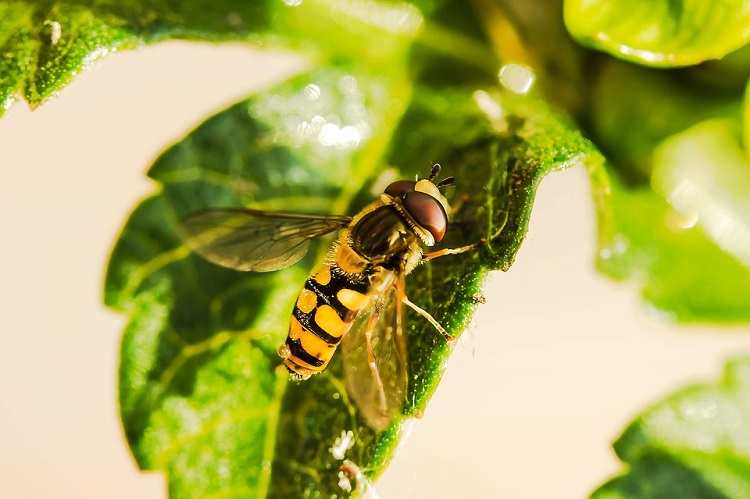 The message about bees and pollinators being so valuable to our very existence on this planet is gaining traction, and generally most people are now more aware that these creatures still need our help. There are over 270 different species of bees in the UK, as well as thousands of species of flies and other important pollinators, many of whose numbers are also in decline. But how many of these – often not very cute, fluffy or charismatic little creatures – would the average person actually recognise as being important?
The message about bees and pollinators being so valuable to our very existence on this planet is gaining traction, and generally most people are now more aware that these creatures still need our help. There are over 270 different species of bees in the UK, as well as thousands of species of flies and other important pollinators, many of whose numbers are also in decline. But how many of these – often not very cute, fluffy or charismatic little creatures – would the average person actually recognise as being important?
All pollinators play a significant part in making sure that crops and wildflowers can grow, not just honeybees and bumblebees, but it tends to be these two groups that get all 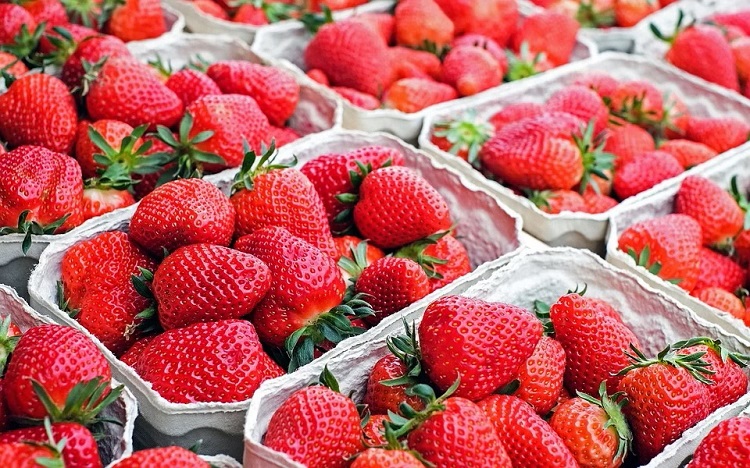 the attention. Strawberries, apples, tomatoes, aubergines, red peppers – these are just some of our staple food crops that depend on being pollinated and people might think that having a managed beehive or two nearby means they don’t have to give it a second thought, but that’s not strictly true.
the attention. Strawberries, apples, tomatoes, aubergines, red peppers – these are just some of our staple food crops that depend on being pollinated and people might think that having a managed beehive or two nearby means they don’t have to give it a second thought, but that’s not strictly true.
NRI’s Dr Sarah Arnold, a Senior Lecturer and pollination ecologist, says that promoting the keeping of honeybees, is not the answer to pollinator conservation. “Honeybees can be like thugs; they make use of gardens and natural spaces, compete with all the other bees on flowers, they steal their nectar and spread diseases. It might be trendy but focusing on honeybees is not necessarily a helpful narrative for the state where we’re at now.”
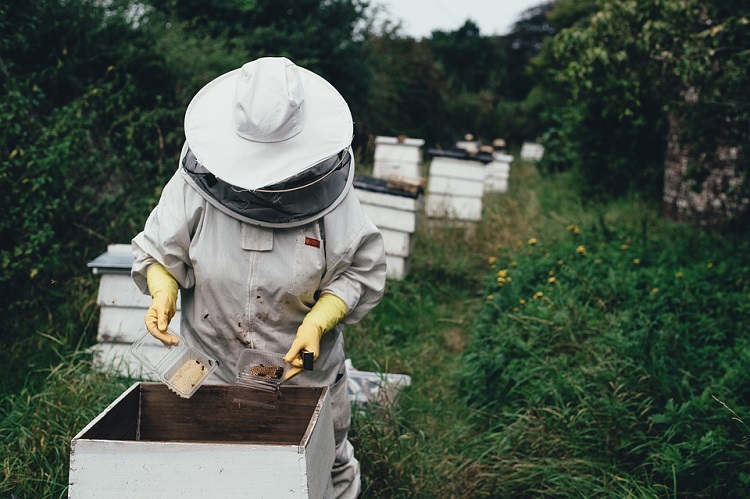 Honeybees have undoubtedly enjoyed excellent press in recent years, and Dr Arnold thinks she knows why: “they give us something tangible that we can relate to, namely jars of honey and beeswax. Their immediate benefit to humans is much more apparent. I think it’s a little more difficult for people to relate to the idea that there are other species out there transferring pollen. All those wild bees and other pollinators are helping the plants set more seed, which results in people having a greater diversity of food on the table.”
Honeybees have undoubtedly enjoyed excellent press in recent years, and Dr Arnold thinks she knows why: “they give us something tangible that we can relate to, namely jars of honey and beeswax. Their immediate benefit to humans is much more apparent. I think it’s a little more difficult for people to relate to the idea that there are other species out there transferring pollen. All those wild bees and other pollinators are helping the plants set more seed, which results in people having a greater diversity of food on the table.”
This World Bee Day 2020 takes place under clear, unpolluted skies thanks to the COVID-19 lockdown so will feel quite different to previous years. Dr Arnold says the subsequent boom in gardening could be both a blessing and a curse. On the one hand, some people are outside in their gardens and local greenspaces like never before, connecting with nature, enjoying their plants and flowers, but on the other hand, quite a lot of people with time to kill are now mowing their lawns weekly – a potential disaster where bees are concerned. “If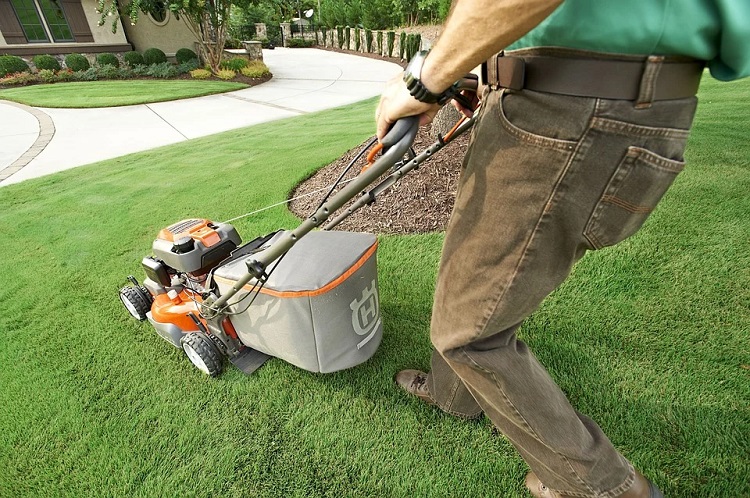 you can relax a bit and maybe try cutting your grass every fortnight, that allows just a few more flowers to spring up in the lawn which is excellent for the bees. The slightly longer grass may even provide better nesting spots for certain species of harmless, helpful bees that prefer to make their nests in the ground under cover.”
you can relax a bit and maybe try cutting your grass every fortnight, that allows just a few more flowers to spring up in the lawn which is excellent for the bees. The slightly longer grass may even provide better nesting spots for certain species of harmless, helpful bees that prefer to make their nests in the ground under cover.”
Development and habitat destruction are probably the biggest threats to pollinators, and the years pre-lockdown saw changes in global land use and the removal of habitats that support bees and other insects. However, everything grinding to a halt on March 23rd has delivered a temporary, short-lived positive effect on bees in the UK.
But Dr Arnold warns that in ecology, real changes in insect numbers must be measured over some years. “Most bees have one generation a year, some have two, but very few species have more than that. So these past 8 weeks might temporarily help those bees for this year, and next year’s generation might be a bit bigger. But if we’ve gone back to normal, land use change and development have resumed and councils are regularly cutting grass verges again, in 2021, all those bees might emerge from their underground nests and find that there isn’t as much food available anymore, so consequently they’ll have less success the following year.”
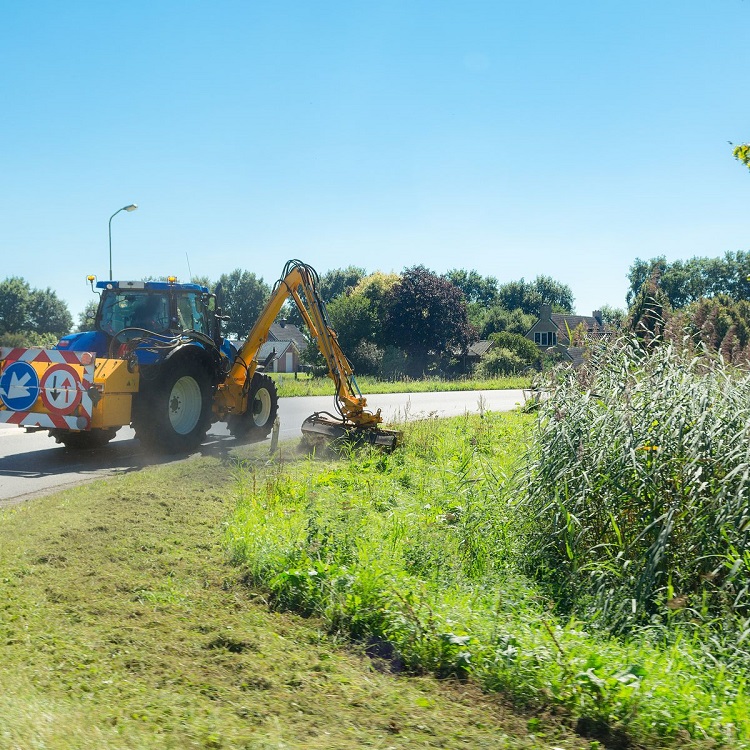 The question has to be asked, could we recognise the positive environmental changes that lockdown has brought, and try to find some way of making them persist beyond this period? For example, could councils discuss a cost-benefit analysis on whether grass verges actually need to be mown so often and kept short?
The question has to be asked, could we recognise the positive environmental changes that lockdown has brought, and try to find some way of making them persist beyond this period? For example, could councils discuss a cost-benefit analysis on whether grass verges actually need to be mown so often and kept short?
The answer to how to make people more aware of all the pollinators at risk must lie in better education as to how and where all the bees fit in. Dr Arnold explains: “It’s just about introducing all these bee species, for example showing people, that the tiny little black insect, only 3mm long, that you just saw going into that dandelion –could also be a bee. I know it’s tiny, not fluffy or cute and it’s not carrying pollen that you can see, but tiny bees are still important. It’s about opening people’s eyes to seeing what’s around them and making them realise that there are more than just two types of bee – honey and bumble.”
Dr Arnold would like to see more casual ‘bee merchandise’ in people’s homes, like tea towels and mugs, that show accurate pictures of other bee species that she says need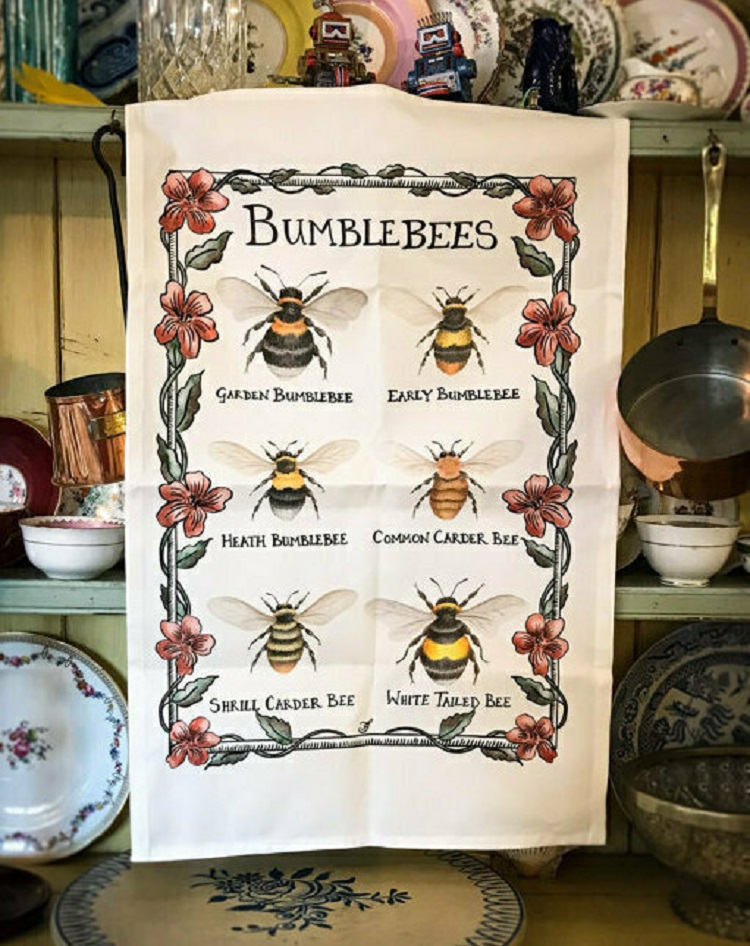 our awareness if they are to survive. She’d like us all to absorb a little bit of information by osmosis, and thinks it would be great if we could say, “oh yes, I know, because I’ve seen the other bees on that mug; I’ve not seen them all in real life, but at least I know they exist.”
our awareness if they are to survive. She’d like us all to absorb a little bit of information by osmosis, and thinks it would be great if we could say, “oh yes, I know, because I’ve seen the other bees on that mug; I’ve not seen them all in real life, but at least I know they exist.”
We all need to care about this because we all need to eat, and a lot of these bees and pollinators are intrinsic to our food production systems. Dr Arnold also says we need to work with farmers, who are often doing their best to control invasive crop pests: “farmers now have fewer tools in their arsenals so there’s a lot of pressure to bring back neonicotinoids, a controversial insecticide. But we need to be moving beyond that and looking for better ways to control pests; but we have to work constructively with farmers, not vilify them.”
Ironically, spotting big fluffy bumblebees right now could be a bit of a challenge. Dr Arnold explains that just as lockdown started, many queen bumblebees were heading underground to begin making their nests. It’s only quite recently that the worker bees are once more coming out and foraging, so now is the point where people are going to start spotting more and more familiar favourites again, just as the May flowers are coming out.
Our worlds have shrunk to our immediate vicinities and a lot of us have been exploring our local areas on footpaths, maybe discovering places we haven’t been to before. This could be the perfect time to notice more and think more, about what we can all do to help protect our pollinators.

